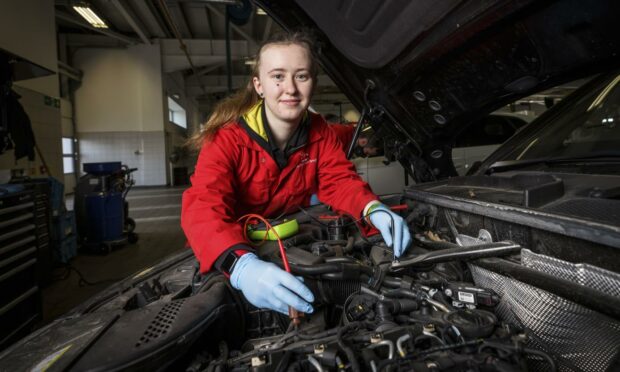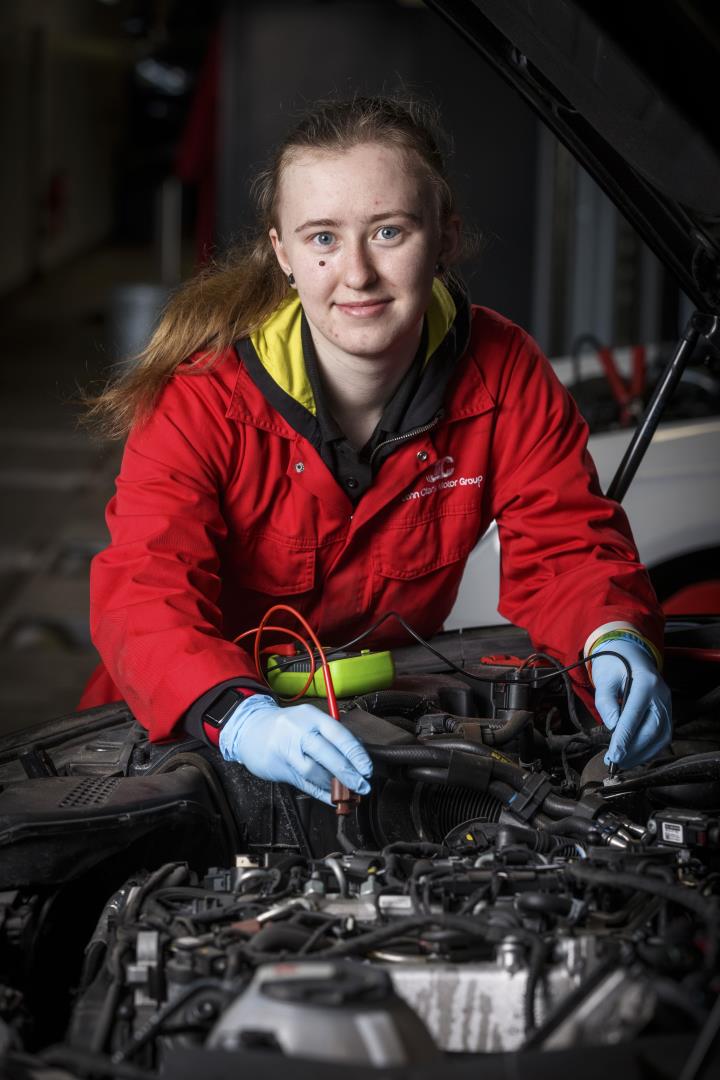National skills agency Skills Development Scotland (SDS) has an important part to play as the country begins to bounce back from the impact of the Covid-19 pandemic.
SDS, set up in 2008, has the role of driving productivity and inclusive growth through investment in skills – helping firms and entrepreneurs achieve their full potential.
The agency works directly with employers – providing advice that helps them invest in existing skills, develop new talent using equal and inclusive recruitment, and get the right products to grow their firm.
The pandemic has been a catalyst for this change, and our clear priority is working with national and local partners to support Scotland’s people and businesses on the road to recovery.”
Damien Yeates, chief executive, Skills Development Scotland.
The SDS budget for the 2021-22 financial year is £263.9 million.
It has more than 1,500 full-time staff operating in all secondary schools, specialist educational establishments, SDS-branded public access centres, partner premises and other community bases across Scotland.
The agency’s chief executive since its formation is Damien Yeates, who oversaw the ambitious merger of four skills-related public bodies into one.
He has led an extensive modernisation programme to enhance the scope and reach of careers information, advice and guidance services in Scotland.
Mr Yeates is passionate about supporting young people and recognising the relevance of high-quality digital support for young people in career decision-making.
He was instrumental in driving forward development of the award-winning digital service My World of Work.
In the SDS operating plan for 2021-22, the CEO said his agency, like all organisations, had rapidly responded to the dramatic and sudden change caused by Covid-19.
He added: “As we progress into the recovery, we remain resolutely focused on equipping Scotland’s people, businesses and economy with the skills they need to adapt and thrive.”
Adaptive resilience
Mr Yeates said SDS’s strategic plan for 2019-22 had outlined the importance of adaptive resilience in responding to disruption, and the economic, demographic, environmental and technological changes that society faces.
He went on: “The pandemic has been a catalyst for this change, and our clear priority is working with national and local partners to support Scotland’s people and businesses on the road to recovery.”
The CEO said the future of the labour market remained uncertain, with clear challenges ahead.
Covid impact yet to be felt
And he warned the full impact of the pandemic may only start to emerge following the end of the furlough job-retention scheme on September 30.
“We must be ready to provide the right support to those most affected, including young people and underrepresented groups, so they can access sustainable and fair work.
“By focusing on upskilling and reskilling, we can give people the opportunities to transition into roles which provide stronger prospects for growth and development.”
Skilled staff are vital for the growth of Scotland’s small and medium-sized enterprises.
One-stop shop
But knowing where to turn for the right information can be difficult.
That’s where SDS says its Our Skillsforce service can help, as it pulls together in one place all the information and support firms need to plan for the future.
This includes free advice, skills planning, human resources help and funding. There’s also information to help businesses engage with education.
At the start of this month, Frank Mitchell started a second three-year term as chairman of the agency.
Jamie Hepburn MSP, the minister for higher education and further education, youth employment and training, said: “Frank has shown leadership and commitment to SDS and to the skills agenda, despite the pressures of the pandemic and this has meant that SDS has been able to respond to rapidly-changing circumstances and pivot delivery.”
Meanwhile, talented apprentices along with their employers and learning providers are to earn recognition at the SDS Scottish Apprenticeship Awards next March.
The honours will celebrate the achievements and continued resilience of foundation, modern and graduate apprentices, employers and learning providers.
Shining a spotlight on apprenticeship champions
Mr Mitchell said: “Since the pandemic changed all our lives, we have seen extraordinary commitment from apprentices working to support their employers and Scotland’s economic recovery.
“Throughout the pandemic, employers have recognised the benefits of investing in apprenticeships to adapt and sustain their business.
“Learning providers have worked hard and innovated to continue to support apprentices in training.
“The awards are the platform to acknowledge the resilience and hard work of apprentices – and shine a spotlight on all those who champion apprenticeships.”
Dream job
One Aberdeen-based 19-year-old has told The Press and Journal she was driven to succeed in her apprenticeship because of her lifelong dream of becoming a mechanic.
Portia Munro was exploring her options at Lochside Academy when her guidance teacher pointed her towards pursuing an opportunity at Aberdeen Audi, part of John Clark Motor Group.
An initial work placement evolved into a modern apprenticeship in 2019 – something Ms Munro was thrilled about because she had always loved working with vehicles from a very young age.
She said: “It’s amazing that I’ve been able to do my dream job, thanks to my apprenticeship.
“I’ve grown up working with cars – I lived next to a field where we had cars, motorbikes and quads, so it is something that I have always loved and just stuck with.
“When I was in school, I had quite a few empty classes in my timetable because courses didn’t go ahead.
“Instead of doing another course, my guidance teacher suggested I gain hands-on experience in the garage.
Lifelong passion for cars
“In the end, I got a qualification coming to the garage instead of going to classes and now I’m an apprentice at a big garage with 40 mechanics – it has been great.”
Even though there is still a common perception the car industry is dominated by men, Ms Munro has always received maximum support from colleagues, friends and family.
She added: “Everyone around me supported me starting the apprenticeship – they all know how passionate I am about cars, so they realised this was something I really wanted to do.”
New skills guide for rural employers
Huge steps under way to inspire next generation of skilled workers



